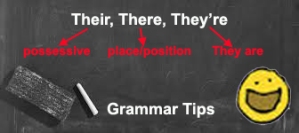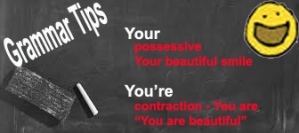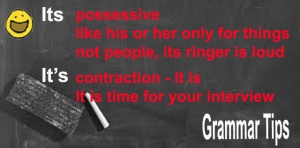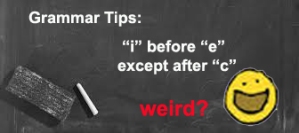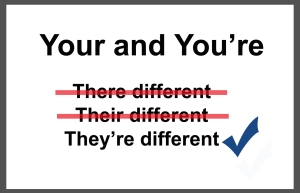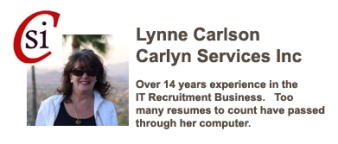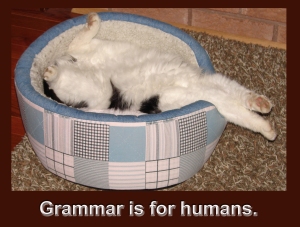
How important is proper grammar and punctuation?
The English language is very confusing. English is my mother tongue and I was educated in the Ontario school system back when grammar was a subject on your report card and it was drilled into us. My kids, also educated in Ontario, have a much more lackadaisical approach to proper grammar, which has become even worse with text messaging, tweeting, etc. I am most definitely a “cross your t’s and dot your i’s kinda girl”. As much as I would like to be part of the “btw, fyi, lol generation” it just isn’t going to happen on anything that I consider an official document. Having had an old Motorola phone when I started texting definitely moved me along the path of short forms. Tweeting has also helped, but when it comes to writing an email, cover letter or resume I am a strictly by the book kinda person. Not saying that I don’t make mistakes, but if I see that I say forgot to capitalize something, it is impossible for me to leave it (even when I try a big argument ensues with my “daytime night time” personality, daytime wins – back I go and correct it).
Your email is the first thing I read, this is my first impression of you and if you haven’t taken the time to use proper English and correct spelling then chances are I might not even open the rest of your documents. A couple of years back I was looking for an Administrative Assistant with good communication skills and the ability to write professional business letters. This is one of the emails I received:
- “lynne – attached is resume, I can type. Use word all the time. “
DELETE, in the trash it went
“Their, there, they’re” – I tried drumming this into my kids heads when they were little and I am still doing it. It really isn’t that hard:
- Their – Adjective – “belonging to or associated with the people or things previously mentioned or easily identified”. It’s like a plural “his” or “her”.
- Their company needs someone to upgrade their desktops.
- The company is looking for resumes for their Financial Services Department.
- There – Adverb – “in, at or to that place or position”
- There is an opening at ABC Company
- I understand there are three people being interviewed for the position.
- The interview will be held over there.
- They’re – is a contraction of the 2 words “they are”
- “They’re going to interview me tomorrow.” or “They are going to interview me tomorrow.”
- Your – Adjective – “the possessive form of you”.
- Your interview went very well and we would like you back tomorrow.
- Please send us your resume
- You’re – is like they’re, it is a contraction of the 2 words “you are”
- You’re going to be seeing Mr Jones at 1 pm” or “You are going to be seeing Mr. Jones at 1 pm”
- It’s is short for it is or it has. Pretty simple right. Read your sentence does it need an “is” or a “has” in there, then the word is It’s. ie.
- It’s time to go to your interview. reads as It is time to go to your interview.
- Its is possessive. It is used the same way “his” and “her” is used, only for something that isn’t necessarily masculine or feminine.
- ie: your phone for example – its ringer is very loud. A fad – its time has come and gone.
- I before E, except after C, or when it sounds like A as in neighbour or weigh.
- lol, other than some common exceptions, weird, insufficient, species, foreign, feisty.
- Can you think of any others?

- Commas: “Use a comma to separate the elements in a series (three or more things), including the last two”
- My skills include Java, PHP, and MySQL. NOTE: that it goes “word comma space” NOT “word space comma”. Putting the space after the word and the comma beside the next word causes MS Office to light up like a Christmas Tree.
- Periods: “Are used to end a sentence”. There should be 2 spaces after a period. period!!!!
- Colons: “The colon focuses the reader’s attention on what is to follow, and as a result, you should use it to introduce a list, a summation, or an idea that somehow completes the introductory idea. – http://www.writingcentre.uottawa.ca/hypergrammar/colon.html”
- Please note: The colon should be beside the word that starts the list or summation. It should not be at the beginning of the first word of the list.
- Skills: Java, PHP, Cobol NOT Skills :Java, PHP, Cobol
- Please note: The colon should be beside the word that starts the list or summation. It should not be at the beginning of the first word of the list.
English grammar is definitely not the easiest thing in the world to master. We are luckily in an age where google is there to help. If you aren’t sure you can type it into Google and just ask “how do I use a comma”. Take the time to do this with your email, cover letter and resume. Or get someone to help you. These are official documents. Take your time, proofread and double check. Don’t have you resume end up in the trash for something as simple as spelling and grammar.
Lynne Carlson started her career off in administration, moved to Cobol Programming and for the last 14 years worked in all things recruitment. Absolutely loves social media and excited about all the new innovations appearing every day!

